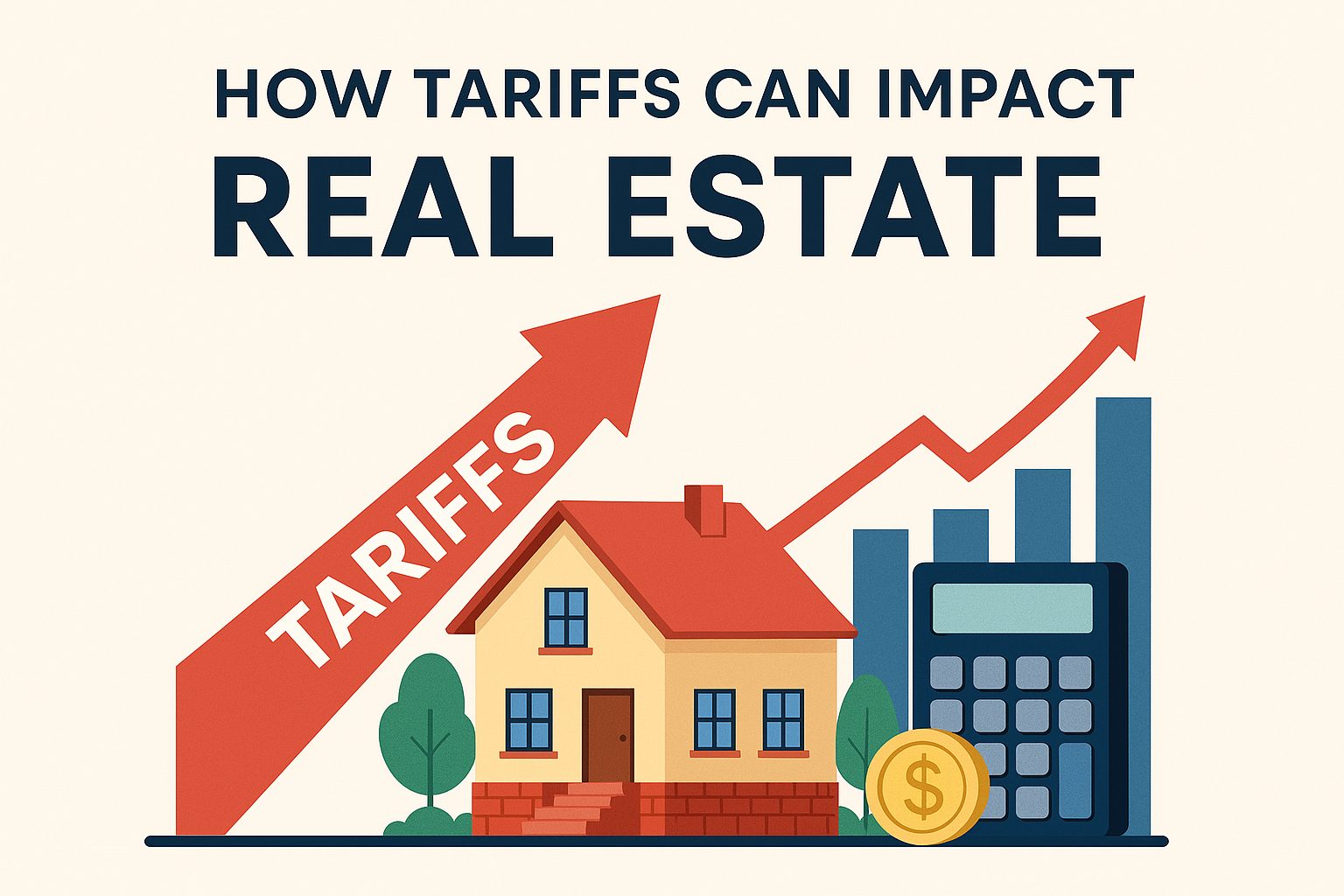When you hear the word “tariffs,” real estate probably isn’t the first thing that comes to mind. But whether you’re buying, selling, building, or investing, global trade policies can have a big impact on local markets.
Here’s a breakdown of how tariffs can affect the real estate market—often in ways that aren’t immediately obvious.
🔨 1. Tariffs Increase Construction Costs
Tariffs on imported materials like **steel, aluminum, lumber, and appliances** can significantly increase the cost of building new homes and commercial properties.
🏗️ How it Impacts Real Estate:
– Higher construction costs = higher home prices
– Builders may delay or cancel projects
– Less new inventory enters the market
Over time, this contributes to reduced housing supply, which can drive up prices even further.
💸 2. Tariffs Can Trigger Higher Mortgage Rates
Tariffs often lead to inflation, as the cost of goods and materials rises. To combat inflation, central banks (like the Federal Reserve) typically increase interest rates.
And when interest rates go up, so do mortgage rates.
🏦 What That Means for Buyers:
– Monthly payments become more expensive
– Buyer purchasing power decreases
– Fewer buyers = lower demand = potential price stabilization or decline
🏭 3. Economic Uncertainty Affects Buyer Confidence
Tariffs are often part of larger trade disputes or economic shifts that can create uncertainty. That uncertainty trickles into the housing and commercial property markets.
📉 Possible Outcomes:
– Reduced demand for commercial spaces (especially retail and office)
– Homebuyers may hesitate to enter the market
– Real estate investors may delay or downsize plans
In short, tariffs can create a domino effect of caution across the entire real estate ecosystem.
🌍 4. Region and Industry-Specific Effects
Tariffs don’t affect every area or industry equally. Some regions or sectors may feel the impact more directly, depending on the type of tariff and their economic reliance on specific imports.
🌎 Real-World Examples:
– A tariff on Canadian lumber might raise homebuilding costs in northern U.S. states.
– Tariffs on Chinese tech components could affect the commercial real estate market in tech-heavy regions like Silicon Valley or Seattle.
🧱 Final Thoughts: Tariffs Aren’t Just a Trade Issue — They’re a Real Estate Issue
Global trade policies can influence everything from the price of a 2×4 to your next mortgage rate. Whether you’re a developer, a homebuyer, or an investor, understanding the **ripple effects of tariffs** can help you make smarter decisions in the real estate market.
💡 Pro Tip:
Keep an eye on tariff news if you’re:
– Planning a new build
– Shopping for a home loan
– Investing in rental or commercial property
Being informed is your best hedge against market shifts.


 Facebook
Facebook
 X
X
 Pinterest
Pinterest
 Copy Link
Copy Link


